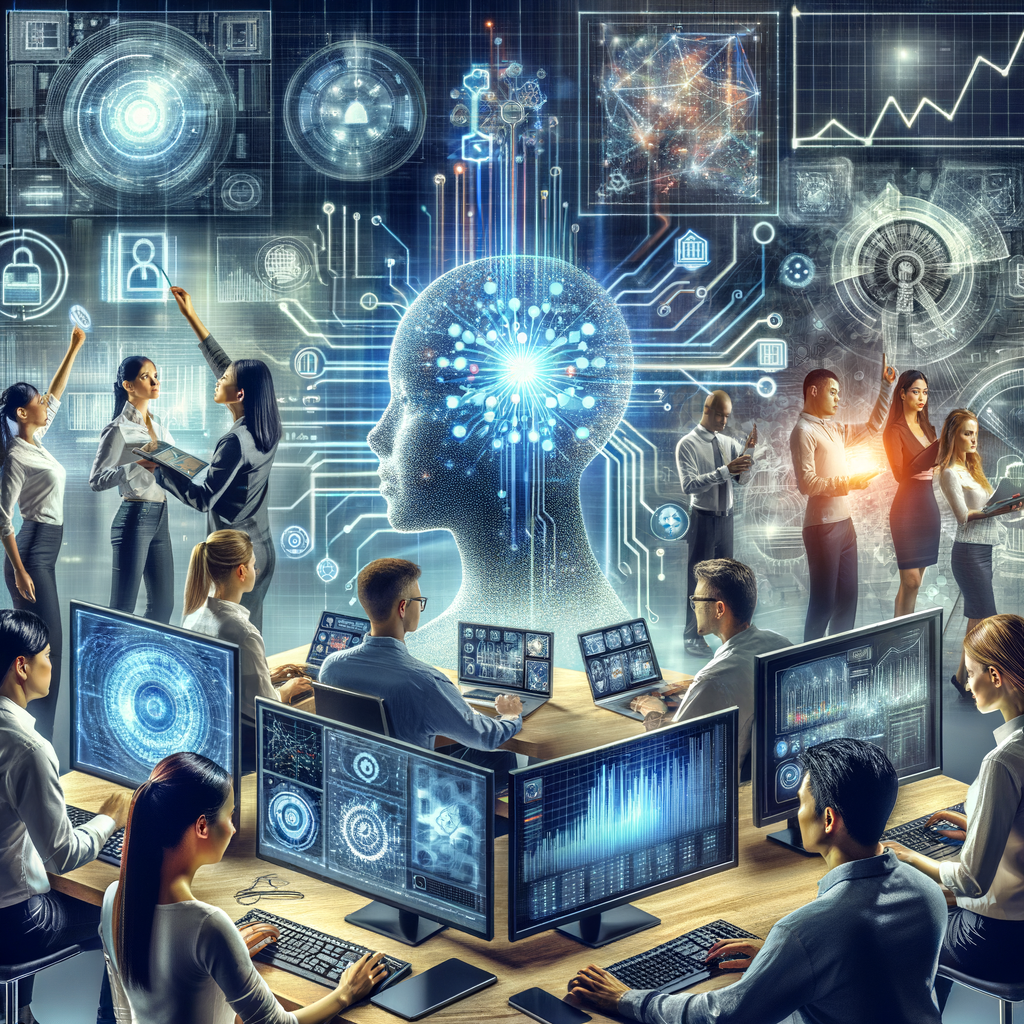Media Efficiency with the Use of Artificial Intelligence

source: own elaboration
Artificial Intelligence (AI) is revolutionizing many aspects of our lives, including how we create, distribute, and consume media. The application of AI in media contributes to increased operational efficiency, more precise content targeting, and improved user experiences. In this article, we will discuss how artificial intelligence impacts media efficiency, presenting specific applications and benefits.
Content Personalization
One of the most significant applications of AI in media is content personalization. AI algorithms analyze user preferences and behaviors to deliver personalized content that is most relevant to their interests. Examples include:
- Media Recommendations: Streaming platforms like Netflix and Spotify use AI to recommend movies, series, and music based on the user's viewing and listening history.
- Personalized News: News services like Google News use AI to deliver personalized news that is most relevant to the individual user.
- Automatic Text Generation: Tools like GPT-4 can generate articles, reports, and other written content based on provided data.
- Video and Graphic Creation: AI can be used to create videos, animations, and graphics, significantly speeding up the visual production process.
- Sentiment Analysis: AI can analyze user comments and reviews to understand how people react to specific content or products.
- Ad Targeting: AI algorithms analyze demographic, behavioral, and contextual data to precisely target ads to the most relevant audiences.
- Content Management: AI-based content management systems can automatically tag, classify, and organize content, making it easier to search and manage.
- Trend Prediction: AI algorithms can analyze data from social media and other sources to predict upcoming trends and user interests.
- Chatbots and Virtual Assistants: AI powers chatbots and virtual assistants that can answer user questions, provide recommendations, and help navigate websites.
- Interactive Media: AI enables the creation of interactive content, such as video games, that adapt to the user's actions and preferences.
Content Production Automation - AI enables the automation of many aspects of content production, leading to increased efficiency and time savings. Examples include:
Data Analysis and Ad Targeting - Artificial intelligence is revolutionizing how companies analyze data and target ads. With advanced analytical algorithms, companies can better understand their audience and reach their customers more effectively. Examples include:
Media Process Optimization - AI helps optimize various processes related to content creation and distribution. Examples include:
Enhancing User Experiences - Artificial intelligence significantly improves user experiences by delivering more engaging and interactive content. Examples include:
Challenges and Ethics
While artificial intelligence brings many benefits, its application in media also presents certain challenges and ethical issues. Examples include: Data Privacy: The collection and analysis of large amounts of personal data raise concerns about privacy and security. Deepfakes and Misinformation: AI-based technologies can be used to create deepfakes and spread misinformation, which can have serious social consequences. Artificial intelligence significantly enhances media efficiency, offering a range of benefits such as content personalization, production automation, data analysis, ad targeting, process optimization, and improved user experiences. At the same time, its application involves certain challenges that require a responsible approach and consideration of ethical issues. As technology continues to evolve, the role of AI in media will only grow, bringing new opportunities and challenges to the media industry.

